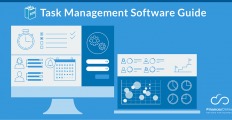Do you know that in the UK, 7.4 million people are freelancing, of which 4.8% are full-time professionals and 8.8% do freelance work in addition to their regular jobs? But how the taxes are deducted in this segment is a big question.
The gig economy has revolutionised the way individuals work, encompassing everything from rideshare driving to freelance writing services offered online. The gig economy has become a crucial source of income for millions of individuals. Nevertheless, the tax implications associated with project-based work can pose certain challenges.
In this comprehensive guide, we will understand the tax challenges encountered by freelancers and on-demand workers. Discover how tax law advocates can assist you in maximising your tax strategies. Let’s begin.
Understanding The Gig Economy
The gig economy is commonly referred to as gig labour. It encompasses a range of tasks that are carried out for financial gain, often facilitated by digital platforms or applications. Some popular tasks are:
- Driving for ridesharing or doing deliveries.
- Renting out all or part of your property.
- Run errands or do duties.
- Selling products online.
- Renting equipment.
- Offer creative or professional services.
- Taking on additional temporary, on-demand, or freelance jobs.
While the gig economy provides flexibility and potential for entrepreneurial ventures, it also presents tax complications that may be intimidating for people new to this form of making a livelihood.
Tax Filing Requirements for Gig Workers
One critical issue that on-demand workers must understand is their tax filing obligations. The Internal Revenue Service. (IRS) requires you to submit a tax return if your net earnings from self-employment are $400 or more, regardless of whether it is a side job, part-time, or temporary.
Properly documenting your income and expenses throughout the year is crucial, as it can become overwhelming without proper guidance. Individuals who work on-demand and engage in cryptocurrency trading as a source of income, are subject to capital gains tax on any profits made from buying, selling, or exchanging digital assets.
Handling taxes for project-based workers can be a bit tricky since they don’t neatly fit into the employee or independent contractor categories. Your classification could have a substantial impact on your tax obligations.
– Employee Status: If you engage in project-based work as an employee, it is expected that your company will deduct taxes from your salary. This simplifies the process as taxes are deducted directly from the source.
– Independent Contractors Status – It is important to note that as an independent contractor, the responsibility for your taxes falls completely on your shoulders. It is important to pay your anticipated taxes, keep detailed records, and submit your income to the IRS.
Tips for Managing Income and Expenses

1. Develop a long-lasting personal budget
Managing cash flow in the freelance economy can be unpredictable. To create a successful budget, it’s important to carefully handle your personal resources and living expenses, taking into account what you can afford even during the most challenging months. When you have extra funds, you might choose to indulge in leisure activities or take a well-deserved vacation.
2. Allocate a designated savings account
Whether you work as a freelance writer, Uber driver, or short-term nanny, it’s important to remember that you are responsible for paying self-employment taxes on your earnings as a casual labourer. Make sure to allocate a portion of your earnings into a designated savings account for tax planning purposes. What is the cost? As a general guideline, 20 per cent is a good rule to follow. Tax authorities also recommend that full-time project-based workers pay their taxes on a weekly basis instead of annually.
3. Make sure to set aside a substantial emergency fund
Finances can fluctuate and come to a halt. During periods of economic uncertainty, finding steady employment and managing finances can be challenging. It is crucial to maintain an emergency reserve. Start your emergency fund with a minimum of $1,000 to account for unexpected expenses like personal injury, illness, or other unforeseen costs. Then, build a savings account that can sufficiently cover several months of expenses in case of unemployment.
4. Consider deducting business expenses
When you work a regular job, your employer typically covers expenses such as your work computer and opportunities for professional growth. In business finance, you are responsible for all of your expenses. Here are some tips to help you:
- It’s important to budget for expenses that are likely to arise, such as computer maintenance or upgrading to a newer model every few years. If you work for a company such as Uber, you might be responsible for covering the costs of routine vehicle upkeep.
- With ample funds available for company expenses whenever necessary, you can enjoy a worry-free experience and have more time to indulge in leisure activities!
5. Diversify your sources of income
Ensuring a steady source of income in an economy requires a strategic approach to diversifying revenue sources. Just like a seasoned financial expert, understanding different ways to generate income can help safeguard your finances and prevent your bank account from depleting. Having multiple sources of income can greatly contribute to reaching important financial goals, such as buying a house, building a retirement fund, or paying off student loans.
Ways to Preparing and Managing Taxes
1. Understanding Your Tax Obligations
UK freelancers and economy workers must manage a range of tax duties to comply with the law while effectively managing their money. Let us examine all applicable taxes to this demographic and any duties for non-residents.
A progressive tax system implies that taxes rise with income; freelancers must disclose and pay self-employment income taxes.
National Insurance Contributions (NICs):
NICs are payments made by people to qualify for certain state benefits such as the state pension and healthcare. Freelancers and project-based workers who fit into this category are self-employed. They must pay both Class 2 and Class 4 contributions on earnings beyond specific criteria.
Value Added Tax (VAT):
VAT is a consumption tax levied on sales of goods and services, including freelancing or task-based work that exceeds a specified threshold for VAT registration. Eligible business expenses may be reimbursed for VAT charges as part of this registration process.
2. Clarifying Tax Responsibilities for Non-residents Tax Return in the UK
Thresholds for Tax Obligations
Non-residents tax in the UK are subject to varying tax regulations based on their residence status and source of income. With the general need to pay tax on earnings generated in the UK such as rental or employment income, that exceeds specified thresholds.
Non-Resident Tax Return Requirements
UK non-residents may need to file a self-assessment tax return.if they have UK income that was not subject to withholding tax at the source or if they have extra UK tax responsibilities such as income received from self-employment or rental properties. Understanding these standards is critical for complying with UK tax legislation.
3. Calculating Tax Deductibles and Allowable Expenses
Freelancers and task-based workers may reduce their tax obligation by identifying acceptable business expenditures such as equipment purchases, travel, marketing, and professional development or they can use reliable tax calculators. They may also improve their tax situation and lower their tax bills by keeping good records and understanding which costs can be deducted from their income.
4. Maintain Accurate Records
One of the most critical components of good tax preparation for freelancers or remote workers is the use of remote work software, for keeping precise records of their earnings and spending. Effective record-keeping and maintaining structured data allows them to claim all relevant deductions and credits when preparing their tax returns. Freelancers and workers should keep the following papers for tax purposes:
Income Records
Keep thorough records of any earnings from freelancing or professional economy activity, including invoices, payment receipts, bank statements, and records from online payment systems.
Receipts
To fully benefit from tax deductions and lower taxable income, save receipts and invoices for business-related expenditures such as equipment purchases, office supplies, travel costs, and professional development charges. These papers support deductions and assist in reducing taxes.
Maintain Mileage Logs for Business-Related Travel in Your Vehicle
To accurately assess deductible expenses associated with vehicle use, it is recommended that you keep a mileage log for business-related travel in your vehicle, such as visits to meet clients or travel between job sites. Mileage records make it simpler to calculate tax deductions.
Home Office Records
When working from home, keep track of expenditures related to operating your office at home, such as rent or mortgage payments, energy bills, internet fees, and repairs or maintenance costs spent when doing business from your home. Keeping these documents can help you claim deductions for utilising them in your commercial operations.
5. Know Digital Tools and Apps to Simplify Record-keeping
Freelancers and flexible workforce wishing to expedite record keeping and simplify tax preparation may use several digital tools and applications supplied by HMRC. These can be used for online UK tax returns, including its self-assessment online service.
HMRC Self-Assessment Online Service
HMRC offers a secure and user-friendly online platform for taxpayers to electronically submit their self assessment tax returns, make payments, and manage tax affairs.
Accounting Software
Consider using accounting software, designed exclusively for freelancers and small enterprises. Such software includes services such as spending monitoring, invoicing, bank reconciliation, and tax reporting to assist users keep organised while adhering to tax requirements.
Receipt Scanning Applications
Mobile applications that enable you to scan receipts simplify expenditure management while on the move. These programs may classify spending, record digital receipts, and work smoothly with accounting software to enable complete expense management.
Mileage Monitoring Applications
Mileage monitoring applications enable organisations to report business-related travel using GPS technology automatically. These programs compute mileage, classify trips, and create tax returns, thereby eliminating human monitoring procedures.
6. Consult a Tax Professional
Navigating the nuances of tax preparation may be difficult for freelancers and flexible workforce economy employees. It is recommended that you speak with a certified tax practitioner who specialises in freelancer tax concerns including crypto tax regulations (If it’s one of your sources of income). A tax specialist may give individualised guidance while also ensuring that all tax requirements are followed.
7. Know Compliance and Filing Dates for Tax Returns
Meeting tax filing deadlines is critical for freelancers and flexible workers to avoid fines and interest fees. In the UK, self-assessment tax returns must be filed by October 31st, following the end of a tax year for paper returns and January 31st for online returns (unless changes arise). However, any changes should be planned accordingly, as missing them can result in automatic penalties.
An online UK tax return gives freelancers and task-based workers a quick and straightforward way to pay their tax responsibilities. Here are some guidelines for a pleasant tax return process:
Gather any Necessary Information
Before completing an online tax return, gather any papers that will allow for a proper submission, such as income records, expenditure receipts, and other supporting data required to complete your return correctly.
Use HMRC’s Online Tools
HMRC offers online tools and services to help taxpayers file their taxes more easily. These include its self-assessment online service and hotline, which provide information and support throughout the process.
Double-Check Entries
Before submitting your tax return, take the time and care to verify all entries thoroughly. Check that all income, spending, and deductions have been appropriately reported to avoid mistakes and conflicts.
Filing Early
Plan to file your tax return well in advance to prevent last-minute rushes or technological challenges, and allow yourself ample time to resolve any questions or inconsistencies that may occur.
Conclusion
For freelancers and professional economy workers, tax planning is essential for effectively navigating the tax system, optimising finances, and ensuring compliance with HMRC. Freelancers and project-based workers can effectively manage their income, spending, and tax responsibilities by following the advice provided in this guide.
Filing your tax return early and taking the time to double-check everything can help minimise risk and make the filing process more efficient, ensuring you don’t incur any fines or interest. Filing your returns early can help minimise errors and make the filing process more efficient.
Understanding the consequences of tax law violations highlights their importance. Freelancers and flexible workers can effectively navigate the complex world of taxes by gaining knowledge and seeking professional assistance.























Leave a comment!